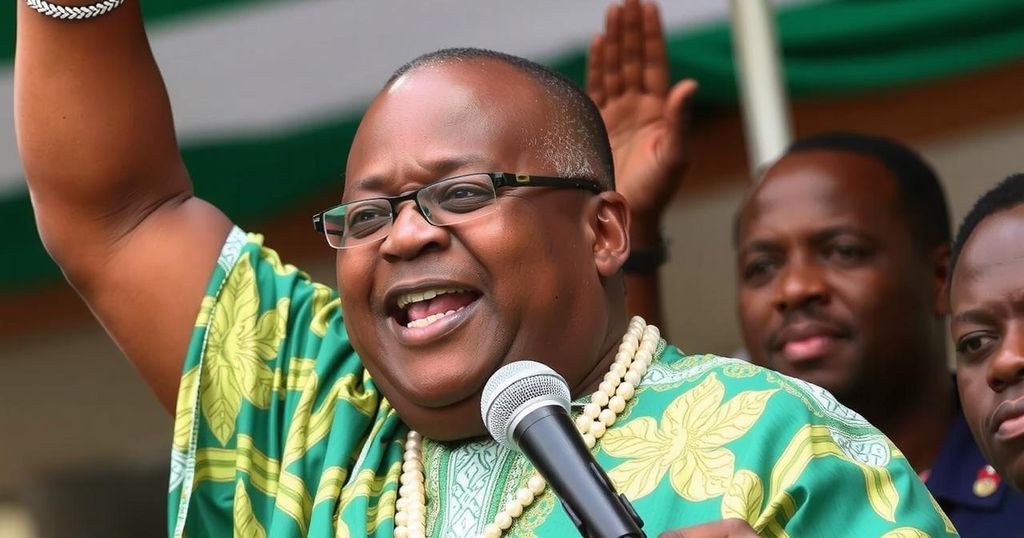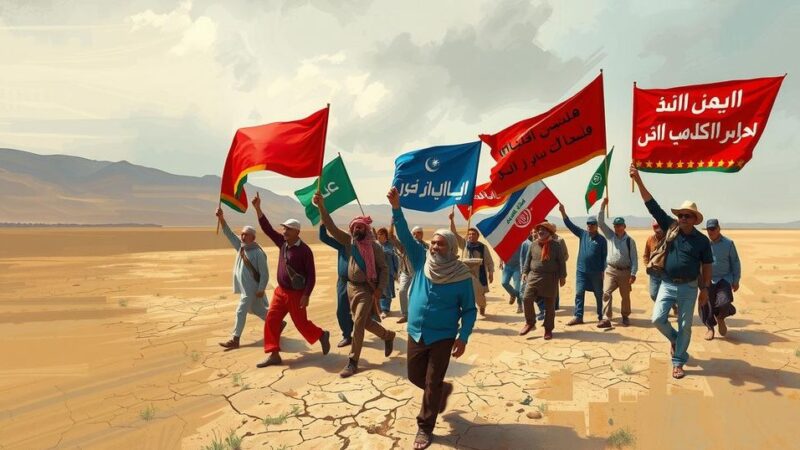Former president John Mahama of Ghana, leading the National Democratic Congress, made a historic comeback to the presidency in the recent election after addressing economic frustrations. His victory marks the first instance of a leader regaining the presidency after being voted out in Ghana’s Fourth Republic. Mahama’s campaign focused on economic reform and job creation, countering past criticisms during his previous term.
John Mahama, the former president of Ghana and leader of the National Democratic Congress (NDC), has made a remarkable return to power by winning the presidency in a recent election, marking his third attempt at the office. His victory is historic, as he is the first leader in Ghana’s Fourth Republic to reclaim the presidency after previously being ousted. Mahama’s campaign strategically addressed the nation’s economic challenges, particularly following Ghana’s recent debt default and subsequent negotiations with the International Monetary Fund (IMF).
Mahama defeated the ruling party’s candidate, Vice President Mahamudu Bawumia, who graciously conceded defeat. The economy was a central topic of the election, with Mahama promising to “reset” Ghana’s economic policies, renegotiate elements of the IMF deal, and establish a 24-hour economy aimed at generating employment for the youth. During his previous presidency from 2012 to 2017, Mahama faced criticisms related to energy crises and allegations of corruption, yet he emphasized his international experience, notably his leadership role during the Ebola crisis as head of ECOWAS.
Mahama, born into privilege in northern Ghana, has a background in politics and has served in various significant roles including as a parliament member and committee chairman. In addition to economic reforms, he intends to enhance governmental transparency by creating a new office to oversee procurement processes, aiming to reduce corruption within the administration. He has publicly supported the controversial anti-LGBTQ bill that remains unsigned but aligns with local sentiments despite international backlash. His campaign representatives expressed a strong belief in Mahama as a trustworthy leader who can bring about change in Ghana.
The political landscape of Ghana has undergone significant changes since the return to multi-party democracy in 1992, with leadership transitioning between major parties. John Mahama first ascended to the presidency in 2012 but lost it in 2016. His recent return represents a significant shift, especially amid economic difficulties that have prompted widespread public concern. With Ghana having entered a deal with the IMF due to financial instability, the focus of the recent election hinged on economic revival and governance integrity, with Mahama’s experience being pivotal to his campaign messaging. The historical context of Ghana’s Fourth Republic illustrates the rare instances of former presidents regaining power after being voted out, underscoring the significance of Mahama’s victory.
In conclusion, John Mahama’s election signifies a pivotal moment in Ghana’s political history, marking the first time a leader has successfully regained the presidency after being ousted. His campaign focus on economic revitalization, transparency, and job creation resonated with voters, especially among the youth. Despite past controversies, Mahama’s extensive political experience and promises to address critical national issues may pave the way for a transformative administration as he assumes leadership once again.
Original Source: www.wfxg.com






